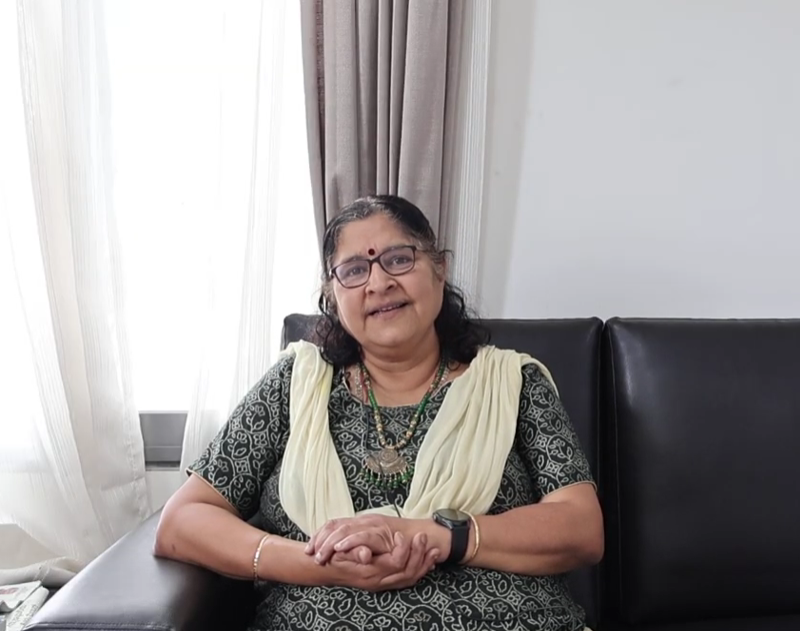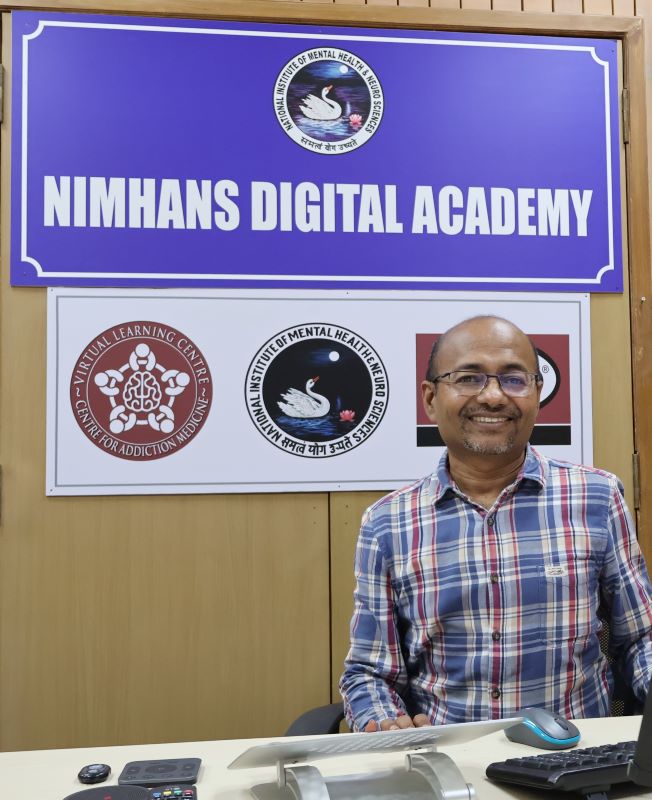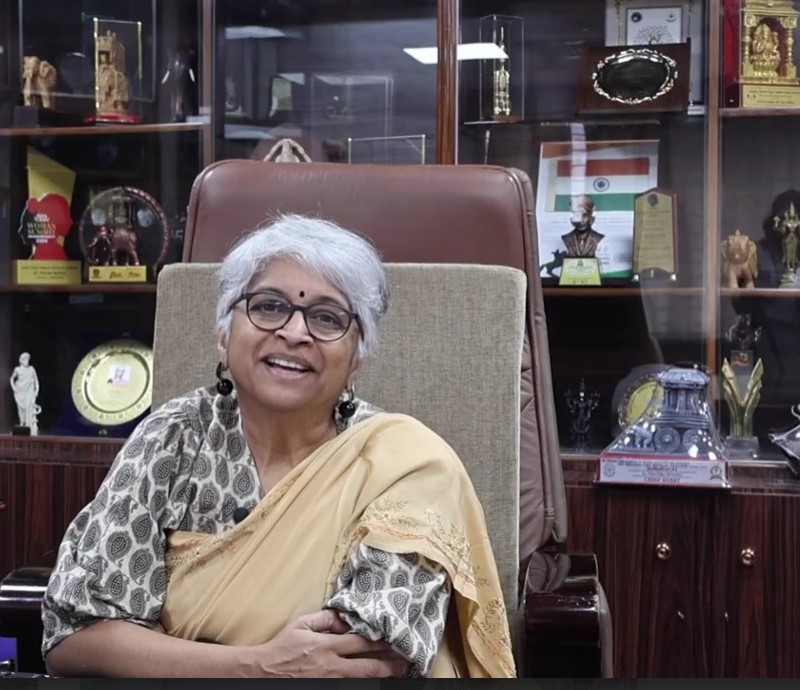Mental health disorders in rural India have traditionally been misunderstood–and hidden. Patients were often isolated or subjected to harmful traditional practices, such as restraints.
Across the country, ECHO partners have been working to destigmatize and improve care for people in need of mental health support.

Dr. Sandhya Thumsi, psychologist and participant in ECHO mental health programs. Credit: Sandeep Kumar, ECHO India, October 2024.
“Before, people didn’t know how to identify mental health disorders. They would dismiss them as just ‘something happening in the mind.’ After training, we now recognize symptoms of depression, anxiety and even severe conditions, like schizophrenia,” says Dr. Sandhya Thumsi, a counselor and ECHO program participant.
Results that Speak for Themselves
“It’s been over a decade since we first embraced the ECHO Model, and the results are evident. What began as a small, focused effort has grown into a nationwide initiative, decentralizing expertise and ensuring communities receive the mental health care they deserve,” says Dr. Pratima Murthy, director of the National Institute of Mental Health and Neurosciences.
NIMHANS first deployed the ECHO Model in 2013 to provide support for addiction management, and quickly expanded to perinatal mental health, child psychiatry, and geriatric psychiatry. Today, they have reached more than 31,000 health care professionals through 50 programs in mental health.
Through ECHO’s virtual mentoring model, participants learn to diagnose and treat mental health conditions; and then, tailor them to their community’s unique needs and challenges. By providing the training virtually, instead of in person, health care providers can access trainings despite geographic or infrastructure barriers; and the ongoing mentorship within ECHO programs creates a sense of community.
Localizing Care
Local health care workers are the backbone of change in India. Through ECHO, these workers have gained the knowledge to detect, treat and manage mental health conditions in their communities.
“It’s not just about technical knowledge. The real change happens when these health care workers bring what they’ve learned back to their communities and create a ripple effect,” says Dr. Thumsi.
Today, more and more patients are receiving timely and effective care. Breaking traditional barriers, the ECHO Model brings together mental health specialists and local health workers, and empowers frontline workers to step up to meet the need.
Not Done Yet
Despite remarkable progress, challenges persist: cultural resistance, misinformation and economic constraints.

Dr. Prabhat Chand, professor of psychiatry at the National Institute of Mental Health and Neurosciences Bengaluru and lead of the VKN-NIMHANS Digital Academy. Credit: Sandeep Kumar, ECHO India, October 2024.
“The challenge is not just providing training but ensuring that it sticks. Sustainable change requires a deep understanding of local contexts, and we are working toward it,” says Dr. Prabhat Chand, a leader in ECHO India’s mental health initiatives.
With more than 73,000 professionals trained in mental health, and a network that reaches across the country, ECHO India is paving the way for decentralized, community-based care. It hopes to expand mental health care access to more districts and more areas of training.
Learn more about ECHO India’s initiatives held in collaboration with NIMHANS and other health care partners.
*ECHO India is a nonprofit trust supporting ECHO partners across the country.
Featured Image Credit: Dr. Pratima Murthy, director of NIMHANS Bengaluru. Credit: Sandeep Kumar, ECHO India, October 2024.

